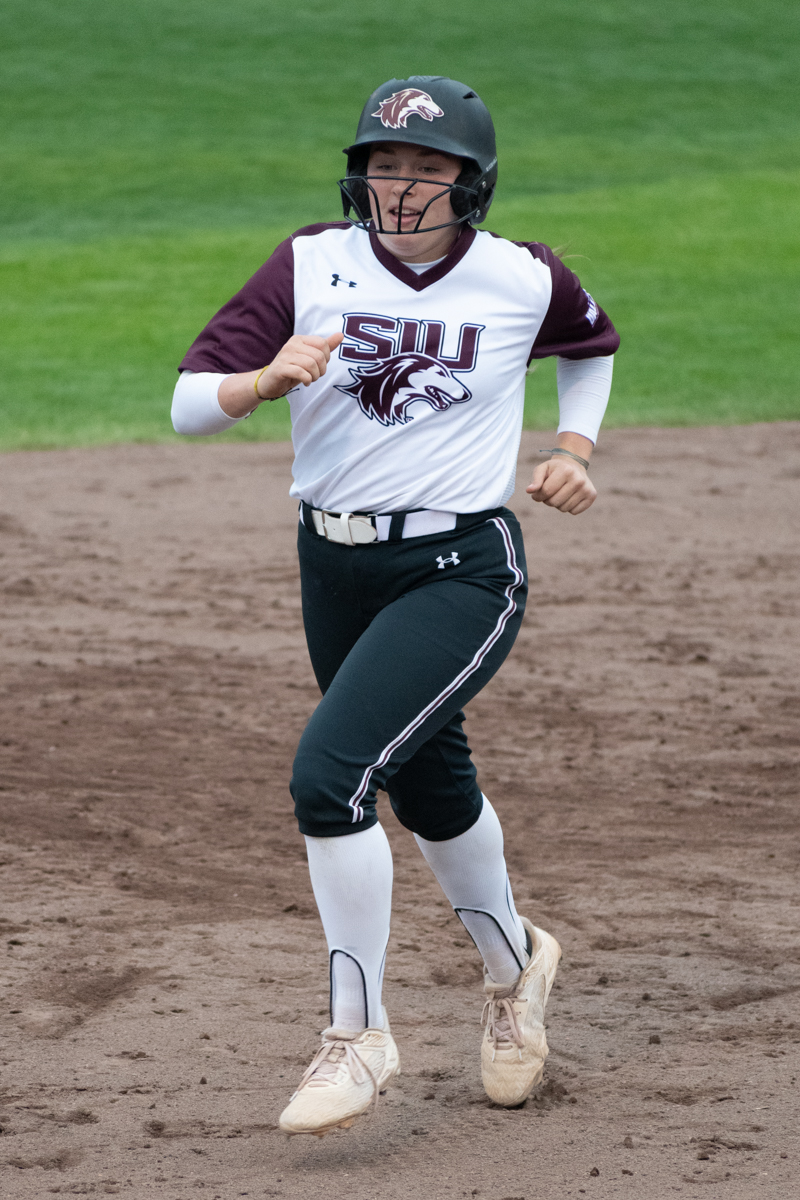Saluki Insider: Three SIU student-athletes share the best and worst parts of the job
January 24, 2020
Many people think student-athletes have it easy because they have their education paid for doing something they enjoy. But being a collegiate athlete is easier said than done.
As a former collegiate athlete, I can say being a student-athlete does have its perks, but many of these are paid for with blood, sweat and the occasional tear.
Taxing workload, mental and physical fatigue, and little free time are just a few things that can take the fun out of a sport for any athlete.
Advertisement
I’ve heard several people complain that athletes receive too much special treatment, but, in my opinion, it is well earned as these athletes pay the price with stress on their minds and bodies.
As an athlete, I competed as a high jumper for the track and field teams at Southern Illinois University and Drake. These schools were completely different, but my experience as a student-athlete at both universities was very similar.
Time management was a large struggle for me as an athlete. Athletes aren’t left with much free time to engage in social activities because the day is spent practicing, competing or catching up on school work.
After a full day of class and practice, my energy level was low and it became very hard to focus on my school work. Weight room workouts would often be held at 6 a.m. before my morning classes. This was tough on my sleep schedule that was attuned for staying up late to finish assignments.
As many college students know, sleep deprivation takes a heavy toll on your body.
Imagine having sleep deprivation while also partaking in challenging workouts, putting immense stress on the body.
This was my reality until I found a proper way to balance my workload.
Advertisement*
Balancing your workload as a student-athlete takes organization and mental toughness.
Without a positive mindset, it’s easy for any collegiate athlete to burn out.
Because many athletes enrolled in college face these struggles, universities have created study hall programs that require the athletes to complete mandatory hours. Personally, it helped me to organize my time so I could complete my school work in a timely fashion.
SIU’s Troutt-Whittman academic center is a great resource for athletes because it provides free printing, tutoring services and academic advising.
I am no longer a student-athlete, so I’ve asked three current Saluki athletes about their experiences:
What is the toughest part of being a student-athlete?
Senior women’s basketball forward Nicole Martin described balancing her efforts in the classroom as the toughest part of the job, while junior football offensive lineman Victor Abraham and junior sprinter Alonzo Taylor-Jones deemed time management to be their biggest challenge.
“The hardest part about being a student-athlete is trying to put just as much effort into one as much as the other,” Martin said. “Also, just staying on top of school work alone which is always difficult, whether you’re an athlete or not.”
Abraham said the hardest part is time management.
“Honestly, the toughest part of being a student-athlete is time management,” Taylor-Jones said. “A lot of the time you get, especially when it comes to in-season, is definitely diminished. It feels like you go from one thing to the next and by the time you’re finished with your day it’s time for you to go to bed and get a good night’s rest because you’re back up early in the morning.”
Is it tougher to focus on schoolwork because of your sport? If so, what strategies do you use to succeed?
Abraham said the services the university offers for student-athletes are very helpful.
“Yes, it is harder to focus,” Abraham said. “A good strategy is taking advantage of available resources. Tutors and study programs make it easier to stay on top of classes so that you don’t fall behind.”
For Taylor-Jones, a well-planned and organized schedule is what helps him to succeed in the classroom.
“It is definitely tougher to focus on your schoolwork because there are so many things you focus on during the week, that it’s hard to zone in,” Taylor-Jones said. “You really have to work on organization and discipline and rely on the resources that are provided to you to help make everything easier for you. Giving yourself an organized and well thought out schedule and having a plan for everything you do is crucial to success.”
Martin sees her experience in athletics as a useful tool when she needs the discipline to complete her classwork.
“I would say yes and no,” Martin said. “Yes, because you have to focus on deadlines and assignments while participating in a higher level sport. It is very demanding and it requires a lot of your time and effort. On the other hand, I believe my sport has made me a more responsible and disciplined person, which pushes me to stay on top of school.”
As far as strategy, Martin said she forces herself to finish her work in study hall because she understands that she’ll be far too tired to do it at home.
What is the best part about being a student-athlete?
“The best part of being a student-athlete is playing the sport I love in front of the school,” Martin said. “We are also well taken care of academically and athletically, whenever we need it.”
The Saluki gear is also a plus, Martin said.
Life-long friendships are what Abraham loves most about being an athlete for Southern.
“The best part is the camaraderie,” Abraham said. “Being a student-athlete makes it possible for you to meet and be involved with others you typically would never meet. The opportunities allow for invaluable relationships and connections that last forever.”
Taylor-Jones said that having teammates that go through similar situations allows for very strong bonds to be formed.
“The best part about being an athlete is the experiences you get and the lifelong bonds that you build,” Taylor-Jones said. “You go through all the pain and suffering and issues alongside other people that are going through the same things you are and there’s no better bond. As well as learning how to micromanage multiple different things and still trying to be successful teaches you a lot.”
We see the life of collegiate athletes to be glamorous on the outside, but there is a lot that they struggle with behind the scenes. The job requires large amounts of dedication, sacrifice, and organization, which many people do not understand.
Sports editor Tāmar Mosby can be reached at tmosby@dailyegyptian.com or on Twitter at @mosbytamar.
To stay up to date with all your Southern Illinois news, follow the Daily Egyptian on Facebook and Twitter.
Advertisement








